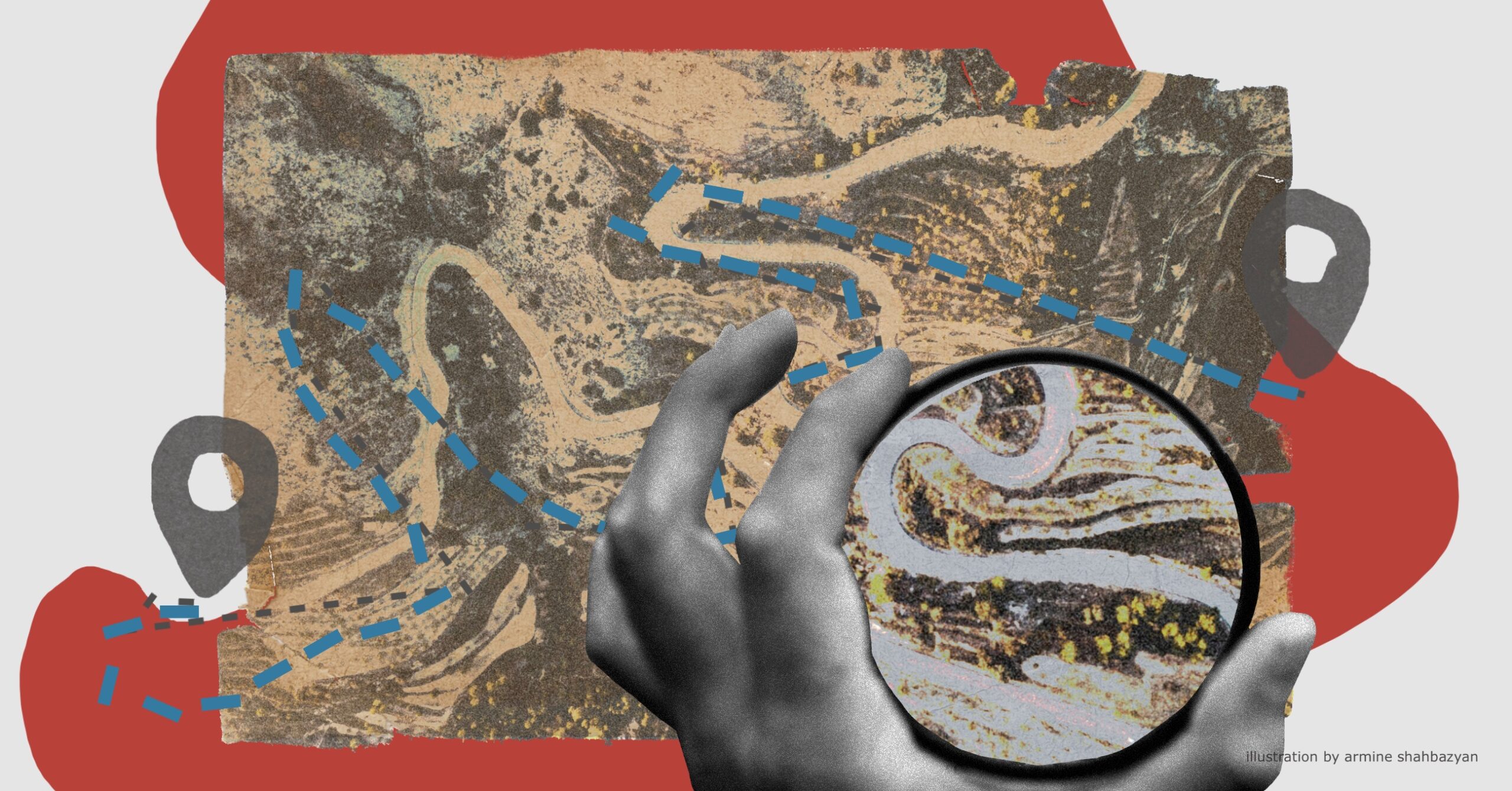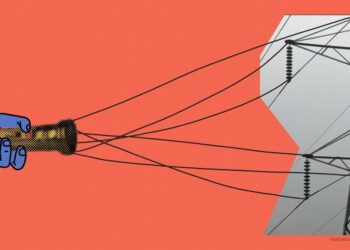

Historian Jirair Libaridian narrates a story not of betrayal, but of failure, a strange defeat experienced by the Armenian elite in a voluminous collection of texts.[1] Since 2020, his book production has been increasing at a rapid pace. Engaged in a publishing enterprise that his detractors perceive as self-justification, Libaridian is nevertheless doing useful work. He makes a significant portion of contemporary Armenia’s obscured history accessible to Armenian- and English-speaking audiences. His recurring theme is to hold all parties accountable, particularly highlighting the irresponsibility of the elites in Armenia, Artsakh and the diaspora.
The Imperialism of the Armenian Elites
In his writings, Libaridian writes of the irresponsibility to make decisions and stick to them in the name of the territorial integrity and national interests of the young state. He also describes the irresponsibility of prominent diasporans making maximalist demands while being anchored in the struggle to defend the Armenian cause (haytadism). Libaridian tends to repeat himself, which lends a pedagogical quality to his discourse. In his writings from the 1990s and 2000s, he uses the word “fear” to describe those who exaggerated the Turkish threat to Armenia, while underestimating Azerbaijan’s potential to cause harm.
Armenia has lacked a concrete strategy for resolving the Nagorno-Karabakh conflict, apart from the 1997 plan* proposed by the OSCE. This plan was outrightly rejected by the Artsakh leaders and President Ter-Petrosyan’s inner circle, who were compelled to resign to avert a potential civil war.
After the ousting of Levon Ter-Petrosyan, neither of the subsequent administrations of Robert Kocharyan and Serzh Sargsyan proposed a peace plan. This was the case even as the balance of power seemed to favor the Azerbaijani side, which was evident in the Four-Day War of April 2016.
Could an Armenia in conflict afford to be independent and uncompromising on the Artsakh issue? While Libaridian doesn’t ask this question explicitly, the book reflects on two key principles: responsibility and sovereignty.
The author believes that the post-Ter Petrosyan Armenian elites shoulder a heavy responsibility for consistently postponing what could have been negotiated then. They seem to have trapped themselves in an illusory certainty that maintaining the status quo was better than making mutual concessions to prevent the worst. In the end, they found themselves forced to negotiate with a knife to their throats when the worst could not be avoided.
Libaridian writes: “We looked for the impossible and, as expected, found nothing. We could keep Lachin, as stipulated in the proposal of September 1997, which Ter-Petrosyan accepted as a basis for negotiations, and because of which he was forced to resign. There was no mention of Russian troops in this proposal. According to this proposal, Lachin would have remained under Armenian control. But we refused because we were sure we would get more.” Libaridian uses his recollections to give a more detailed account of that decisive meeting between Levon Ter-Petrosyan and the Artsakh leadership in the autumn of 1997.
His articles, focusing on the dangers of upholding an untenable status quo, carry a prophetic tone. Each rejection of a proposed peace plan, for not being sufficiently favorable, leads us to an even more unfavorable plan. And so the cycle continues. At the beginning of his article “What Happened and Why?” published right after the 2020 war, he states: “We lost in a war we had to avoid at all costs, a war we would not be able to win.”
Libaridian, who was Levon Ter-Petrosyan’s former special advisor on foreign and security affairs, gained his understanding of Azerbaijani political dynamics through close ties, and even friendships, with several Azerbaijani negotiators. This includes his counterpart Vafa Guluzade, a former Soviet diplomat who specialized in conflict resolution and served as President Aliyev’s special representative for the Artsakh dossier.
If Armenia could win in the 1990s, when it had no army and its economy was in ruins after the Soviet collapse, why was victory unattainable in 2020? At that time, the state and economy were in much better shape, and the army was considered one of the most efficient in the region. Libaridian’s response is that, “The game is not about what you have at the start, but who has the upper hand at the end.” Unsurprisingly, he dedicated his book to his distant and esteemed predecessor, fifth-century historian Movses Khorenatsi, who recognized the value of a sovereign state, as well as the role of elites and internal factors in its demise.
According to Libaridian, our fundamental issue lies in the way we think. The term “we” is elusive. It encapsulates the greed of political parties, some of which consider themselves above the state. It also includes our perception of the Nagorno-Karabakh conflict and our framing of the issues involved in its resolution, starting with our aspirations, our dreams, and ideals. In reality, no effort has been made to challenge our truths and certainties. We are certain that justice and truth are on our side, yet no country, not even those closest to Armenians like Cyprus or Greece, is willing to support the cause of a free Artsakh.
“Our problem is that our political culture is based on dreams rather than facts,” Libaridian concludes. He asserts that in light of the new realities, Russia, in a strong position on the Ukrainian front, considers itself entitled to demand increasing concessions from Armenia. Unlike the authorities in Yerevan, he ascribes Armenia’s defeat in the war to diplomatic mistakes and the false hopes spread by politicians and accepted by society over the past 30 years.
Can we be truly independent? With what leverage, by what means? Should the keys to Armenia’s destiny be entrusted to Russia, as advocated by Kocharyan and his allies, or to the West, as proposed by current Armenian Prime Minister Nikol Pashinyan? Libaridian, while careful not to cite the failures and mistakes of the Ter-Petrosyan administration and criticizing the poor handling of the Artsakh issue by Presidents Kocharyan and Sargsyan, does diverge from Pashinyan. He does this by noting the limitations of Pashinyan’s pro-democracy approach to the Artsakh problem. Can the conflict be resolved through democratic legitimacy and representation of the peoples’ interests? Although Heydar Aliyev never democratically won the popular vote (his successor-son continues that tradition today), his predecessor, the populist nationalist Albufaz Elchibey, was democratically elected between 1992 and 1993. However, he did not demonstrate flexibility in negotiations.
Another major weakness, according to Libaridian, was the reliance on international mediation to resolve the conflict, instead of taking independent action. Armenia’s elites avoided confronting reality. The true challenge lies in regaining a certain degree of sovereignty and independence, a task made difficult without learning from past mistakes and adapting to the rapid geopolitical changes in the region.
Libaridian, a former active member of the ARF-Dashnaktsutyun, criticizes his former party for importing a form of politics from the diaspora that is incompatible with the concept of the state and its constraints. It’s as if the ARF was out of touch, seeing the Armenian state not as an end, but as a stepping stone for new conquests under Russian protection. We can only hope that there are representatives from this party, both in the diaspora and in Armenia, who can respond to his assertion.
*In 1997, the three co-chairs of the OSCE Minsk Group proposed a two-step solution: the first consisted of the demilitarization of the line of contact and the deployment of an international peacekeeping force, the second then consisted of the determination of an official status for Nagorno-Karabakh. This solution was rejected by both parties. Armenia refused to subordinate the second stage to the first, and Azerbaijan refused to negotiate the status of Nagorno-Karabakh.
[1] G. J. Libaridian, A Precarious Armenia, The Third Republic, the Karabagh Conflict, and Genocide Politics, Gomidas Institute, London, 588 pages.
Also see
Conflicts Fueling Geopolitical Dynamics in 2024
2024 has gotten off to a bad start, with several destabilizing fires fueling the specter of a widespread conflict. In these circumstances, Armenia must opt for a global view of the regional situation, writes Tigran Yegavian.
Read moreEVN Security Report
EVN Security Report: January 2024
Noting the instrumentalization of warfare as the dominant and preferred strategic tool of the Aliyev regime, a rationalist explanation of war is introduced in this month's security briefing to address the causal mechanisms shaping Aliyev’s incentives for being conflict-prone.
Read more







All is clear: both Ter_petrsoyan, Liparityan, Qocahryan, Serz Sargsyan, Nikol Pashinyna, all they are Russian special service agents. And all whte they did they did to protect Russian imperial interests which have nothing to do with the Armenian Independence. Armenia can be independent state, but when only free itself from Moscow’s agents